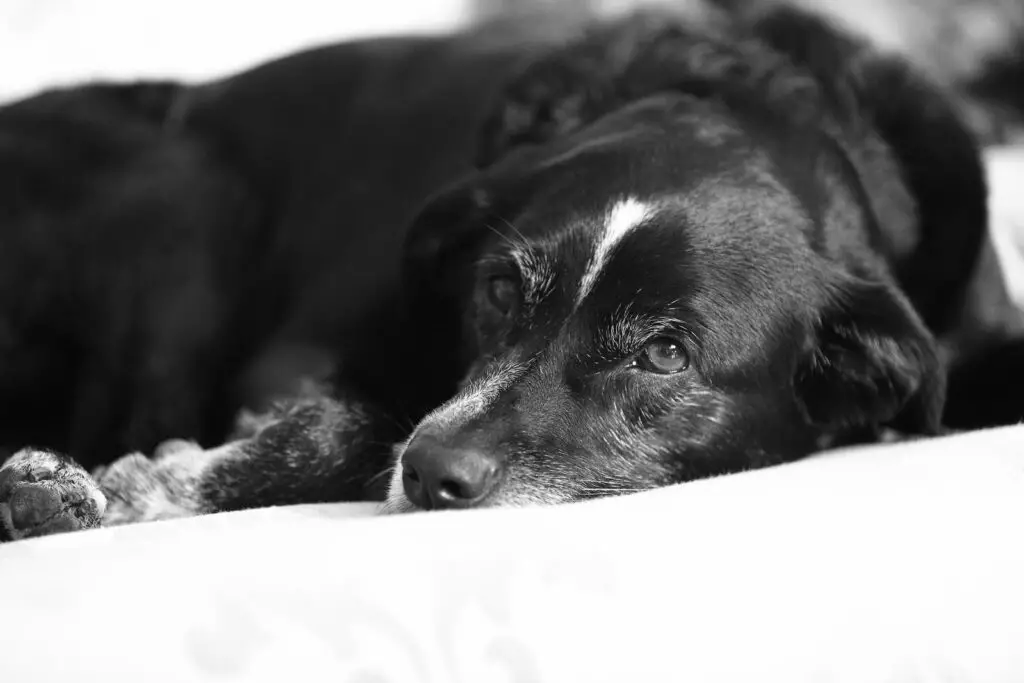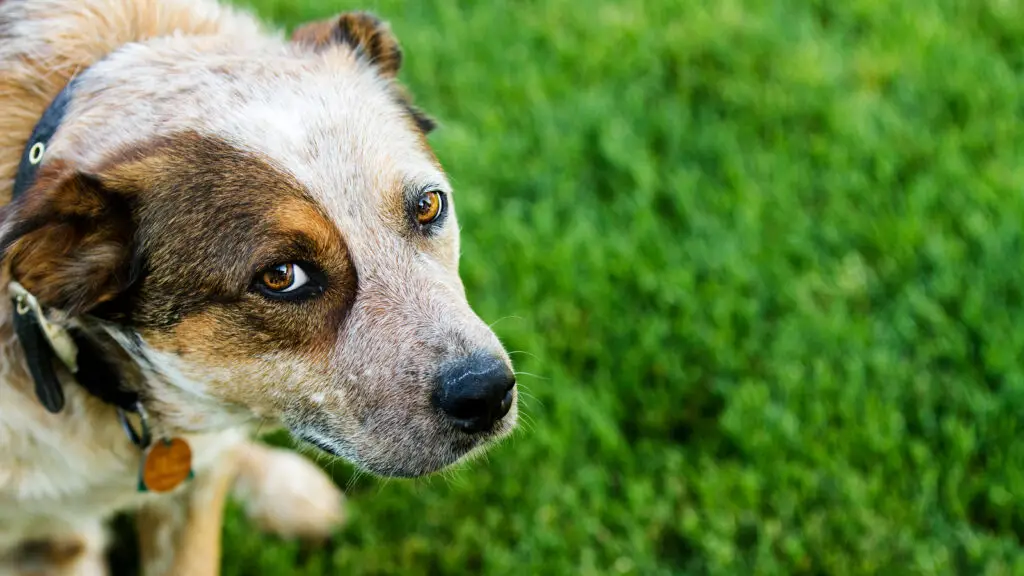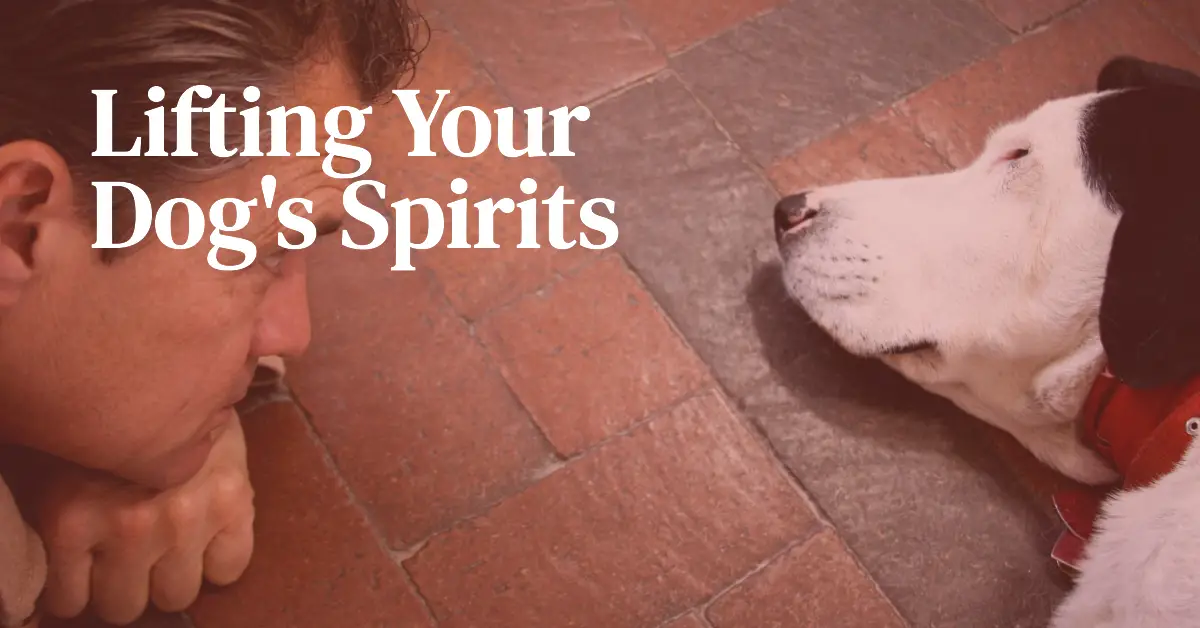When an elderly family member passes away, the grief that dogs experience can be difficult for us to fully comprehend.
They have often lived with that loved one their entire lives, and may even refuse to eat or drink after the death, leading to a gradual decline and eventual passing – a tragic scenario that has been reported in the news.
Grief is a real and powerful emotion for dogs and cats, just as it is for other animals.
Unfortunately, there are no quick fixes to immediately eliminate their pain, but there are steps we can take as a dog’s family to comfort their mourning souls.
Soothing Your Distressed Dog
The Power of Time
There’s no doubt that time helps to heal a broken heart. While the loss of a loved one may never fully heal, over time it becomes more bearable. This is true for our pets as well.
The first two weeks after losing a loved one are the worst for dogs. They will constantly search and sniff around the house and yard, seeking the scent of their deceased family member. Many will pant, pace, drool, and whimper almost constantly, and lose their fighting spirit when faced with provocation from other dogs.
Some pets will refuse food and water for days after the death of a human or animal family member. They may hide in unusual places to sleep and refuse to play. It’s heartbreaking for us to witness our pets going through this normal grieving process.

Provide Stress-Relieving Activities and Exercise
The best thing we can do is to be there for them. Take more walks, cuddle on the couch, and snuggle in bed. We can also provide their favorite treats, take them to different parks, or go on hikes. Exercise is the best antidepressant and stress reliever for both humans and animals.
If the symptoms persist for more than two weeks or fail to improve, the dog may be suffering from clinical depression and may need veterinary assistance.
Treating Depression in Dogs
If after two weeks the dog’s attitude and behavior remains abnormal, it’s important to see a veterinarian. Vets have various medications that can help relieve your dog’s symptoms.
Prescribing antidepressant medication in combination with plenty of exercise can be effective in helping your dog. Most pets can be successfully treated with a combination of natural remedies, prescription medications, and lots of low-intensity aerobic exercise.
After one to two months of treatment, most dogs can begin to resume their normal activities. While they may still long for their lost loved one, they are better able to carry on with their lives.
Beware of Physical Complications
One thing to be concerned about with grieving pets is a condition called “loss of consortium.” Many dogs who are very close to their families are older, which puts them at risk for undiagnosed, potentially age-related disorders.
The stress and anxiety associated with depression can push failing organ systems to the brink of crisis and lead to a life-threatening situation.
Too many older dogs develop heart failure, kidney disease, high blood pressure, and other ailments a month or two after the loss of a loved one. This is attributed to the effects of chronic stress.

Even if your dog doesn’t show serious signs of grief and depression, if he doesn’t begin to gradually return to normal within a few weeks, take him to your veterinarian for a checkup. Simple blood and urine tests, along with a thorough physical exam, can help identify and address any underlying issues before it’s too late.
Whether to Adopt a New Pet
Replacing a deceased loved one with a new pet is not recommended for grieving dogs or cats. The bond between a person and an animal is different from the bond between two animals, and the presence of a new dog does not necessarily ease the suffering of an existing pet.
If the dog has overcome the initial stages of grief and is healing, this is a better time to consider adopting a new pet.
Grief Affects the Whole Family
Grief affects the entire human and animal family. Healing takes time and effort, and some pets (and people) may benefit from medical treatment.
Overcoming grief is not a matter of “toughing it out,” but of trying to survive. If you or your pet needs help, it’s not a sign of weakness or abnormality – grief is natural, normal, and painful.
Don’t hesitate to communicate with your veterinarian after the loss of a family member. Our common goal is to restore our animal companions to health and happiness. Take comfort in knowing that, with time and care, everything will be okay.

